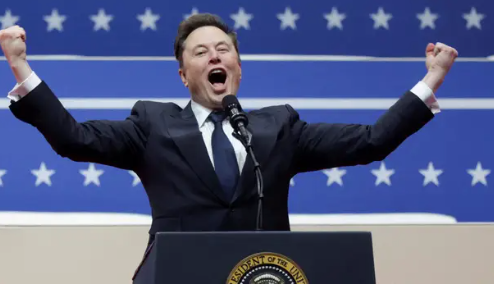Elon Musk has once again catapulted himself into the heart of American political discourse with the bold launch of his new political initiative—the “America Party.” What began as a Twitter (now X) poll quickly escalated into a major national conversation, when Musk asked his followers whether they supported breaking away from the traditional two-party system.
The response—an overwhelming 2-to-1 in favor—emboldened Musk to announce the formation of his own political party. This announcement is not only significant in terms of timing but also in how it signals a tectonic shift in how tech billionaires, especially someone as influential as Musk, are willing to directly challenge the political status quo.
While Musk clarified that he is not immediately targeting the presidency, he has expressed a clear intention to influence Congress by supporting candidates in 2–3 Senate races and around 8–10 House districts. His goal seems to be less about symbolic protest and more about wielding actual legislative power in a narrowly divided Congress. This targeted approach could make it easier to establish the America Party’s relevance in Washington without the impossible task of building a full-fledged presidential campaign overnight. However, even this more modest approach faces formidable legal and logistical barriers. As analysts point out, forming a new national political party involves complex, state-by-state legal challenges, including massive petitioning efforts and years of bureaucratic navigation.
Musk’s move has naturally drawn the ire of Donald Trump, who took to Truth Social to criticize the America Party as “ridiculous” and to describe Musk as “completely off the rails.” Trump warned that third parties only lead to “total DISRUPTION & CHAOS,” which likely reflects his concern that Musk’s initiative could splinter conservative votes and threaten GOP control in tight races. The friction between the two moguls—once publicly aligned—has now erupted into an all-out digital war. Trump also accused Musk of turning against him due to policy disputes, including a new bill that supposedly cuts electric vehicle incentives—something directly affecting Musk’s Tesla empire.
What makes this political feud even more extraordinary is Musk’s use of his social media platform, X, as the primary battlefield. No longer just a neutral tech platform, X is being openly used by Musk to advance his personal political agenda. He has been actively engaging in political debates, publishing memes targeting Trump, running polls, and mobilizing public opinion. This real-time engagement allows Musk to bypass traditional media and reach millions of followers instantly—an advantage no other political figure, not even Trump, currently holds with the same level of platform control.
Despite the media storm and online buzz, the viability of Musk’s America Party remains highly questionable. Experts warn that it could take hundreds of millions of dollars and years to achieve ballot access across all 50 states. While Musk certainly has the resources, campaign finance laws and regulatory constraints could limit how much he can contribute directly once the party is formally established. Moreover, building grassroots support, local offices, campaign staff, and voter outreach infrastructure is a monumental task that can’t be solved with money alone.
Yet even if the America Party fails to gain significant electoral traction in the short term, its impact could still be far-reaching. Musk’s challenge to the political duopoly may embolden other non-traditional candidates and tech leaders to enter the political arena. It also threatens to reshape the Republican voter base by offering an alternative to Trumpism that is still economically conservative but more libertarian and tech-driven. For Musk, this isn’t just about politics—it’s about ideology, influence, and control over the narrative. The digital-first approach to party-building, where memes, polls, and influencer-led engagement dominate, could mark a new chapter in American political campaigning.
In summary, Musk’s America Party is a bold, risky venture that exposes both the weaknesses of the current political system and the disruptive potential of tech billionaires in politics. Whether or not it succeeds electorally, it has already shifted the Overton window, sparked a high-profile feud with Donald Trump, and demonstrated how social media platforms can be weaponized for political mobilization. This is not just a political experiment—it’s a cultural shift in how politics, technology, and personal ambition intersect in 21st-century America. Keep Reading Questiqa.us for more news.







Average Rating